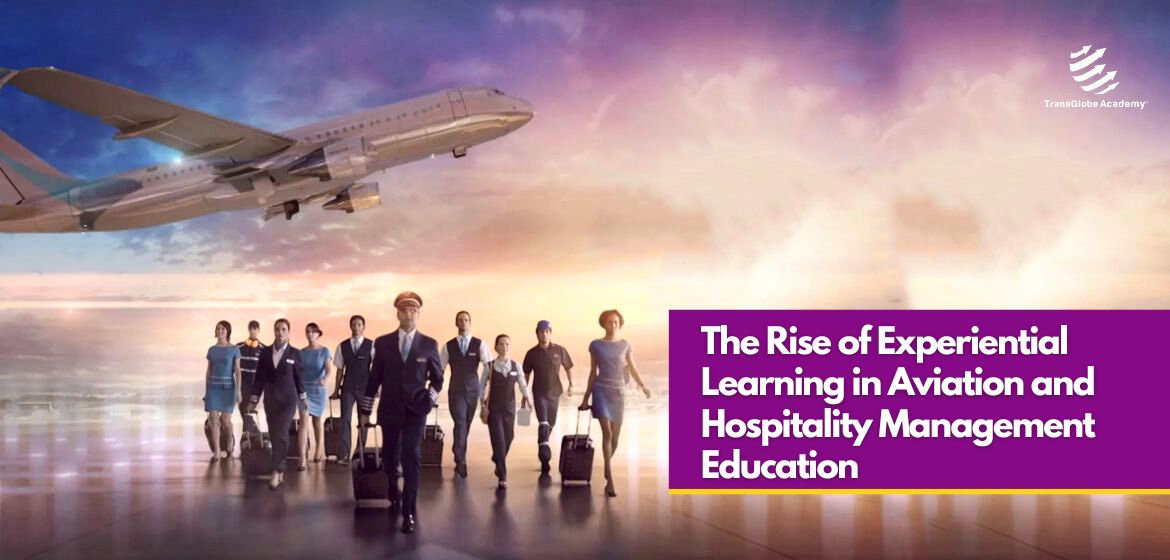Experiential learning provides students with the opportunity to learn by actively engaging in real-world experiences. It allows individuals to practice and experience new skills in a safe environment, which prepares them for their regular responsibilities. Unlike traditional academic training, experiential learning combines theoretical knowledge with practical experience, resulting in deeper engagement and understanding. This approach embeds learning within the experience itself, enabling participants to develop the conviction and ability to apply their new skills effectively. Overall, experiential learning is a powerful method for driving meaningful and lasting change. And it is no different for Aviation and Hospitality Management, where experiential learning is the key.
The rise of experiential learning has revolutionized aviation and hospitality management education. In these programs, it’s not just about theory – it’s about real-world experience. The focus is on preparing students for a seamless transition into the industry upon graduation. For instance, students get to work in a restaurant or hotel as part of their education, gaining hands-on experience. Additionally, there are simulation laboratories and management simulations that mimic real-life scenarios in the industry. This immersive approach allows students to bring industry issues into the classroom, providing a well-rounded education that embraces the real world of aviation and hospitality management.
The Emergence of Experiential Learning in Aviation and Hospitality Management Education
Importance
Practical skills enhancement, improved comprehension, preparation for the industry, and increasing self-assurance are all significant factors contributing to the rise in popularity of experiential learning within aviation and hospitality management education. In an industry that is constantly changing and highly competitive, the importance of experiential learning cannot be emphasized enough.
Benefits
The increasing popularity of experiential learning in aviation and hospitality management education can be attributed to its many advantages. By closing the divide between theory and practice, experiential learning allows students to refine their technical skills and improve their problem-solving abilities. Additionally, it offers avenues for creating professional connections, gaining self-assurance and proficiency, and getting ready for prosperous careers in aviation and hospitality management. The well-rounded syllabus, hands-on instruction, industry affiliations, job placement assistance, and upkeep seminars serve to further enrich the benefits of experiential learning in this particular sector.
Opportunities
The field of aviation and hospitality management education is undergoing a transformation, placing greater importance on experiential learning. Integral to this transformation is the focus on providing students with practical learning experiences. These experiences encompass internships, industry placements, simulated training, and project-based learning, allowing students to apply their knowledge in real-world settings and develop relevant skills for their future careers. The increasing emphasis on experiential learning in these fields is gearing students towards success in the ever-changing and fast-paced aviation and hospitality industries.
In conclusion, the growth of experiential learning has significantly changed aviation and hospitality management education, providing students with important real-world experiences that help connect theory with practice. By focusing on developing practical skills, preparing students for the industry, and building confidence, experiential learning is preparing the next generation of aviation and hospitality professionals for success in these fast-paced and dynamic industries. As experiential learning becomes more popular, it is clear that this immersive approach will play a crucial role in shaping the future of aviation and hospitality management education.
The rise of experiential learning has also made a significant impact on airport management courses in Kochi. TransGlobe Academy, one of the best aviation institutes in Kochi has integrated experiential learning opportunities into their coursework, providing students with hands-on experiences and real-world exposure to airport management.

